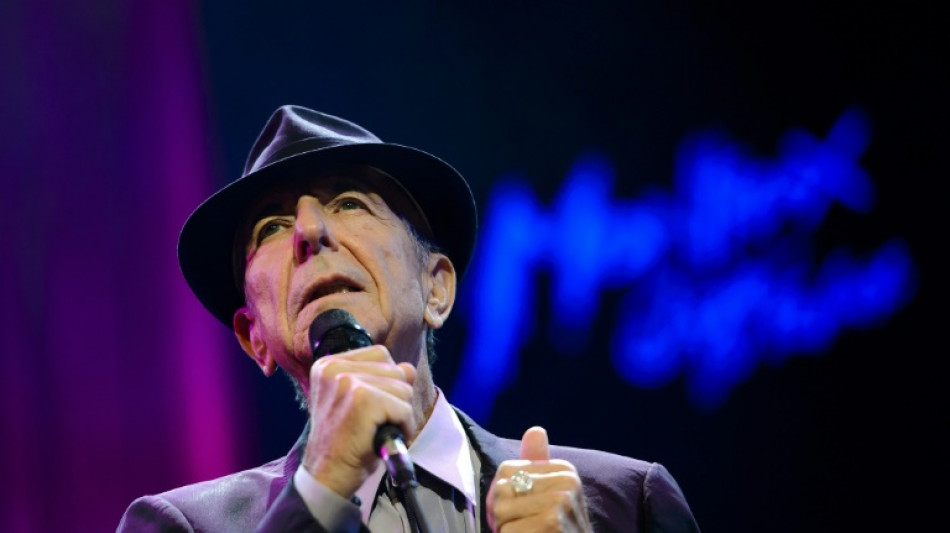
'Not a god': Filmmakers dissect Leonard Cohen through 'Hallelujah'

A filmmaker duo retracing Leonard Cohen's life through his legendary anthem "Hallelujah" said they were so in awe of the Canadian singer that it took them years of preparation before tackling the documentary.
Presenting "Hallelujah: Leonard Cohen, A Journey, A Song" at the American Film Festival that opened at the weekend in Deauville, France, Dan Geller and Dayna Goldfine told AFP they studied Cohen's personal notebooks, rare footage and even his selfies for eight years before making the film.
"When we first thought about the project, and then even when we were first embarking upon it, my feelings about Leonard were that he was a god. You know, it was the great Leonard Cohen," Goldfine said.
"How were we possibly going to do justice to this god?"
Geller and Goldfine approached the life of the singer -- who gave his blessing to the project two years before he died aged 82 in 2016 -- through "Hallelujah", his most famous song, which has acquired cult status in the world of rock.
When Cohen first released the song, tucked away on the "Various Positions" album from 1984, it went almost unnoticed.
But then Bob Dylan performed a cover, followed by The Velvet Underground's John Cale, and Jeff Buckley, and then some 300 artists recording their own versions of "Hallelujah".
"It's looking at Leonard Cohen through the prism of his most famous song," Goldfine said.
- 'He's a human being' -
Focusing on the one song relieved the filmmakers of "the burden of having to do like a cradle to grave by a biography", she said.
Instead, they highlighted "his influences and the parts of Leonard's spiritual journey that illuminated why he was the only person in the universe who could have possibly written 'Hallelujah'", Goldfine said, adding: "The song is so much about everyone's spiritual journey."
Geller and Goldfine, based in San Francisco and whose previous work includes "Ballet Russes" and "Isadora Duncan," acknowledged that obtaining Cohen's blessing was crucial.
"Without that, we would have gotten nowhere," Geller said.
It still took the duo years to access Cohen's notebooks, now owned by his family, which contain detailed insights into the several years it took the singer to get "Hallelujah" right.
As they studied the archives, they also discovered that Cohen had developed an early knack for photographic self-portraits.
"We like to say Leonard was the first selfie taker because he was way ahead of his time, he started taking selfies of himself using this old Polaroid camera, probably going back to the 70s," Goldfine said.
The film also contains a moving scene when a young, nervous Cohen broke off a performance of his first hit "Suzanne" in 1967, choking with stage fright, only to be coaxed back onto the stage by his duet partner, US singer Judy Collins.
The incident added to the filmmakers' growing realisation that even the great Cohen was only human.
"He's a man. He's not a god," Goldfine said. "He's a human being who worked very hard on himself. Every day of his life."
O. Petrow--BTZ

 London
London

 Manchester
Manchester
 Glasgow
Glasgow
 Dublin
Dublin
 Belfast
Belfast
 Washington
Washington
 Denver
Denver
 Atlanta
Atlanta
 Dallas
Dallas
 Houston Texas
Houston Texas
 New Orleans
New Orleans
 El Paso
El Paso
 Phoenix
Phoenix
 Los Angeles
Los Angeles



